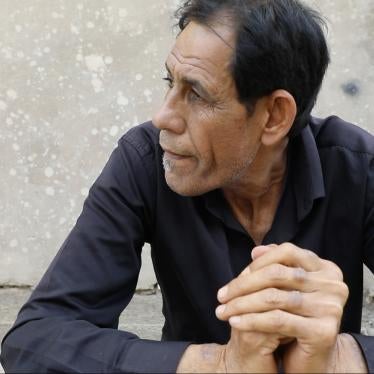The United States came under fire this week for failing to conduct a meaningful investigation into acts of torture committed under the administration of George W. Bush.
The issue came up at a session of the United Nations Committee Against Torture in Geneva, where US compliance with the international Convention against Torture and Other Cruel, Inhuman or Degrading Treatment or Punishment was up for periodic review. Ahead of the review, a group of five former Libyan detainees who alleged that they were tortured while in US custody sent a letter to the committee asking why the US had never interviewed them as part of the US government’s criminal investigation into torture in CIA custody.
This investigation, initiated by the Justice Department in 2009 and led by Special Prosecutor John Durham, was never adequate to begin with, insofar as it looked only into those CIA abuses that went beyond the so-called enhanced interrogation techniques authorized by the Justice Department, some of which constituted torture, as President Obama has acknowledged. Yet even allowing for this serious limitation, the investigation should have encompassed the cases of the Libyan detainees, who were picked up after 9/11, interrogated and tortured by the CIA who held them for between eight months and two years, and then returned them to Libya where they were further abused in Libyan prisons. I documented their treatment in this Human Rights Watch report. It included a case of waterboarding as well as another form of water torture that went beyond what the Justice Department is known to have authorized.
But the letter from the Libyans pointed to a deeper question: How could investigators have known whether CIA treatment went beyond what was authorized by the Justice Department unless they asked former detainees, “What happened to you?”
Under article 12 of the Convention against Torture, the US is obligated to conduct a “prompt and thorough” investigation into acts of torture, by, for example, taking adequate steps to secure evidence, interview victims, and identify eyewitnesses.
Committee members pressed the US delegation on this. Interviewing former CIA detainees would have been very “enlightening,” committee member Jens Modvig said, adding provocatively, “the Durham []investigation … found there was not sufficient evidence. Well … you might [not] find what you are not looking for…” The US responded with something they had never disclosed before – the fact that the US interviewed 96 witnesses for the Durham investigation. Whether any of those 96 were former detainees in CIA custody, they wouldn’t say (new statements by lawyers for additional detainees suggest not). But they asserted the investigation was done according to the highest standards.
The Obama administration ended the CIA’s interrogation and detention program, through which the agency subjected detainees to torture and other ill-treatment, and banned such practices going forward. But until the US fulfills its obligations to fully investigate and hold those responsible for torture to account, it will remain in violation of the treaty, denying redress to the victims and undermining its ability to promote the ban on torture globally.








